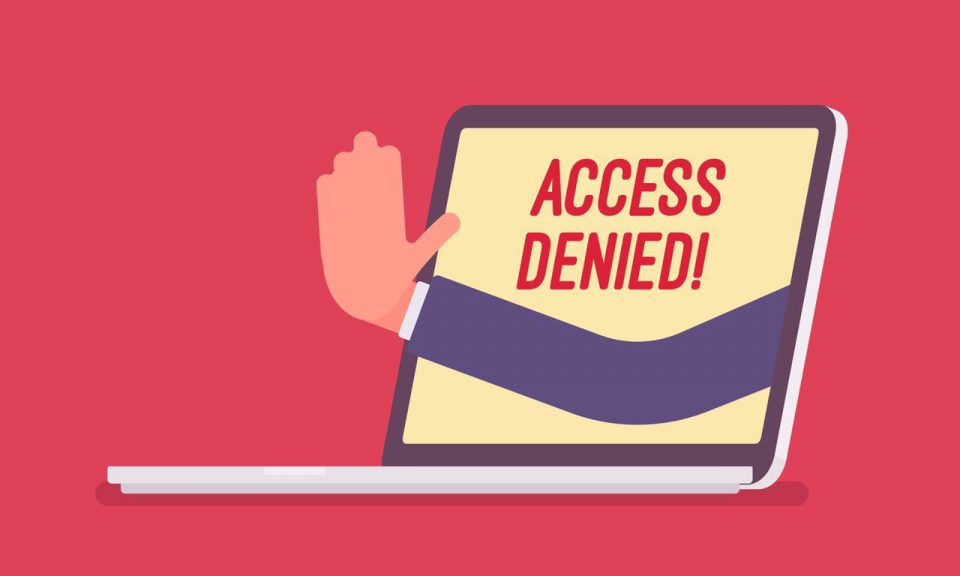Written by: Dua Mahar
Internet was introduced in the year 1969 when the first message was sent using the help of ARPANET. The purpose of its creation was to transmit data from separate computers at various universities and research laboratories in a more convenient manner. It is a globally distributed network that connects many autonomous networks altogether. Even though internet today has become the most prime source of information many Government bodies debate on whether the content displayed should be censored or not. Due to the nature of internet globally it is difficult to control the information that can easily be dissuaded in other forms of mediums that are used for communication purposes. Whenever the word ‘censor’ comes around we are forced to think that our freedom is being compromised in some way considering how domineering that thought could be we always resist its application. However, it doesn’t always have to be the extreme end of execution but the internet could be censored in a way that it leaves a positive impact on the society protecting those who could easily be exploited through it due to their vulnerable state.
Although internet is seen as a means of practicing the freedom of speech, expressing all brackets of emotions it has also been accounted to cyber bullying resulting in teenage suicides and an increased rate of depression amongst all teenagers including the LGBTQ community. According to research at Oxford over the years it has been concluded that cyber bullying makes teenagers twice as likely to self-harm themselves, mostly which are below the age of 25.Many medical universities advise intervention such as counseling, helplines and anti-bullying initiatives to counteract the effect of cyber bullying. There is also a matter of exploitation as well for those who are in a vulnerable state of mind. Blackmail , racism, terrorism and hate seeps through the cracks targeting people for recruitment, violence and disillusionment, whether that happens in case of body shaming, color discrimination or using ones anger to get manipulated into harming someone else, there are nonetheless many crime cases that have resulted due to cyber bullying.
Not only does internet spread hate, it’s also a place where pornography is becoming a lucrative business. Although some would say that it’s a matter of free will and liberation if females and males participate in such activities knowing very well what its demanding it’s also becoming a medium for Sex trafficking and proliferation of amateur pornography. Video clips are uploaded without consent and there is an easy access for underage kids and teenagers to view videos that are not age appropriate. It is also illegal when the line is crossed between producing consent based pornography and sex trafficked pornography that goes unnoticed amidst the clutter created on internet, children are kidnapped, raped, coerced or manipulated into performing in pornography to aid pedophiles all over the world. This comes down to protecting children’s right and safety all over the world over surfing the internet freely.Another reason for censorship is the protection of intellectual property rights and piracy. Although content is uploaded within hours of release it hurts those producing them to a greater deal if it’s readily available and that too for free. Millions of dollars’ worth of content is distributed illegally through pirates all over the world. If people don’t pay for content uploaded or distributed how will there be enough financial gear to back up new production of content anywhere? However people claim that information provided must be free but it doesn’t trump the fact that those who created that information take out their time and bear a cost to produce it as well, if they don’t get a hefty return for the cost incurred it all becomes discriminatory towards them. Why would one take the initiative if there is no return?
Internet censorship is not a new idea that has been brought forward in today’s world of freedom. This idea is actively being implemented on in many countries. Amongst which the most famous example is South Korea, where the government maintains a broad-ranging approach of monitoring internet activities and gate keeping information that may seem too violent, subversive or socially harmful towards the society. Other examples are Russia and Egypt. Egypt legalized censorship of any internet website that may threaten “national security” or “national economy”. And Russia controls information on the basis of restricting websites that advocate drug production, drug abuse, child pornography and description of suicide methods.
All these countries have been practicing the implementation of internet censorship without it having to threaten people’s freedom but weighing the cost of security of the nation as a whole and every individual in it opposed to free unsupervised access to the internet.

